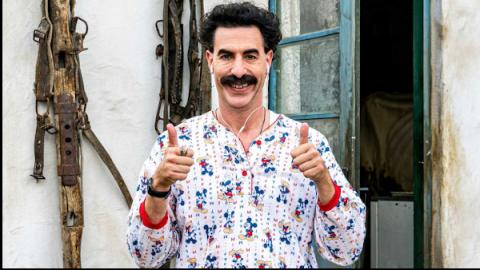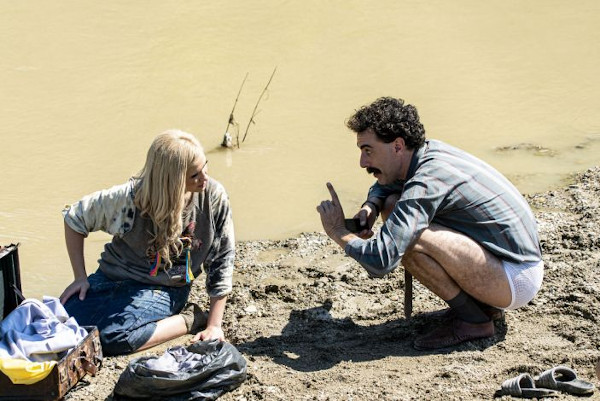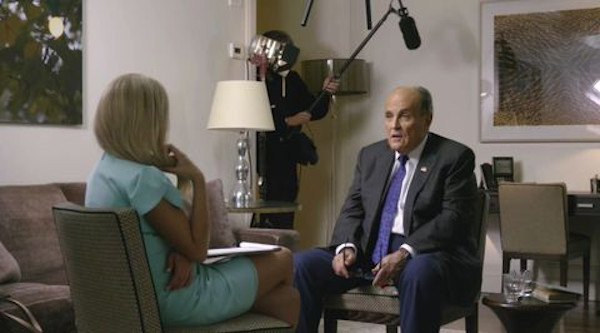Sacha Baron Cohen Returns With Usual Cringe-Worthy Antics in ‘Borat’ Sequel

At a Glance:
Borat Subsequent Moviefilm
3 stars
Starring: Sacha Baron Cohen, Maria Bakalova
Director: Jason Woliner
Available on: Amazon Prime Video
For fans of Sacha Baron Cohen, a Borat sequel is the reward for 14 years of faith and anticipation. Was it worth the wait? Mostly.
Cohen once again takes on the persona of Borat Sagdiyev, a journalist from Kazakhstan, a nation bridging Central Asia and Eastern Europe. Kazakhstan is a real place, and one can reasonably argue that Cohen has unfairly stigmatized the nation as racist, backward, and inept. Of course, one can also argue that Cohen unfairly stigmatizes most of the targets of his razor-sharp wit. Limiting one’s critique to that narrative would, of course, miss the valuable social statements that are buried within the oft boundary-pushing humor that Borat is built on.
We learn at the start of Subsequent Moviefilm that the fallout from the first Borat movie has landed him a prison sentence marked by years of hard labor. He is released, however, when the leader of Kazakhstan offers Borat (the country’s best-known journalist) an opportunity to travel to America with a gift for Vice President Mike Pence. You see, the Kazakhs have learned that President Trump has an affinity for authoritarian leaders, and they hope to foster the same type of friendly relationship the American president has with Vladimir Putin.

So Borat travels to America and – through a plot device best discovered on one’s own – ends up on a road trip with his 15-year-old daughter, Tutar (Maria Bakalova). On the quest to deliver the present, Borat finds himself everywhere from a Jewish synagogue to a hotel room with former New York mayor Rudy Giuliani. The politically savvy reader is already aware of the fallout from the Giuliani sequence, and it is just as shocking as everyone has read.
The conceit of Borat comedy, of course, is that – although there is a loose plot – most of the bits are filmed with nobody outside Cohen and his production crew in on the gag. So the reactions one sees from non-cast are supposed to be real. That makes it shocking when Borat, say, asked to buy a cage for his daughter and the owner of a feed store happily shows his best option. Of course, nobody outside of Cohen and his coconspirators know how much of the film is set up and how much is organic, but the sequences are raw enough that viewers get the impression that a healthy portion of the onscreen antics involve unwitting dupes.

Throughout the movie, Cohen dons a variety of disguises to keep his identity hidden, likely because the Borat character is so easily recognized after the success of the first movie. I’ve seen at least one critic note that the disguises don’t make sense within the context of the film, and that’s a fair critique. Why Borat would lose his trademark suit in favor of overalls and face prosthetics is unclear, but if the stunts are what you come for, you are rewarded.
Cohen’s humor is dark, biting, and relentless. He has a clear point of view and targets far-right conservatives with venom. Because of this, there will be plenty of people in America who find the film more offensive than funny, but those who share Cohen’s outrage with the direction the country has taken may laugh harder than they have in some time.

Author Bio:
Forrest Hartman, a Highbrow Magazine contributor, is a longtime entertainment journalist who teaches in the Department of Journalism & Public Relations at California State University, Chico.
For Highbrow Magazine































































































































































































































































































































